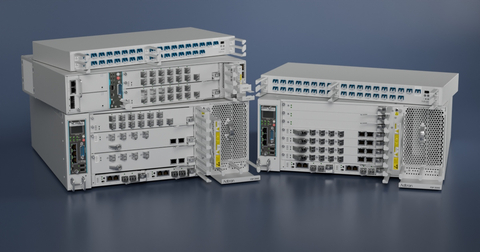Telkomsel expands 5G network infrastructure in Batam
Telkomsel has expanded its 5G network infrastructure on the Indonesian island of Batam, enhancing 5G connections in major commercial and residential areas such as Harbour Bay, Nagoya, Batam Center, Engku Putri and Hang Nadim Airport.
The leading Indonesian operator selected its longtime partner, Ericsson, to provide network solutions for the project, which increased the total number of Telkomsel's 5G base transceiver stations (BTS) in Batam City to 112.
Indra Mardiatna, Telkomsel's network director, said that expanding the company's 5G infrastructure will enable seamless coverage and accelerate economic growth and digital transformation in the region.
Batam, located 20km south of Singapore, has been part of the Indonesia-Malaysia-Singapore Growth Triangle free trade zone since the late 1980s. Recently, the island has rapidly emerged as a key data center hub after Nongsa Digital Park was granted special economic zone (SEZ) status in 2021.
Telkomsel said that expanding its network strengthens its "Hyper 5G" services and enables the company to support Batam's rapidly growing manufacturing industry. One of its recent projects is implementing a private 5G standalone network at Pegatron Group's new smart factory on the island.
Up to 1,200 Telkomsel IoT SIM cards are connected to the 5G network, which connects thousands of sensors and machines in real time. This enables performance monitoring, production process control and predictive maintenance with ultra-low latency. Telkomsel's 5G public network also supports employee mobility and digital collaboration throughout the facility.
"By increasing operational efficiency, productivity, and competitiveness for industry players such as Pegatron, Telkomsel affirms its role in strengthening the national smart manufacturing ecosystem and accelerating industry 4.0 in Indonesia," the operator said in a statement.
Enhanced 5G coverage
With an increased number of 5G BTS units strategically located across Batam City, Telkomsel subscribers can now enjoy enhanced Hyper 5G services. These services offer download speeds of over 610 Mbit/s (four times faster than 4G), upload speeds exceeding 100 Mbit/s, and latency as low as 14 milliseconds.
According to Telkomsel, these capabilities are ideal for applications requiring high speed, low latency, and reliable connectivity, including ultra-HD video streaming, seamless video calls, real-time gaming and AI-powered enterprise solutions.
To date, nearly a quarter (23%) of Telkomsel's total subscriber base in Batam uses 5G devices, with an average data consumption of 24GB per user per month.
In addition to adding more BTS units, Telkomsel said it improved 5G performance in Batam by automating key parts of its network management. This was achieved by integrating AI into the company's autonomous network framework. The system can detect and respond to disruptions in real time while dynamically optimizing network performance based on user conditions and demands. The result is a smoother, more reliable customer experience; improved operational efficiency; and a lower risk of service interruptions.
5G network expansion across Indonesia
In addition to Batam, the telecom operator has expanded its 5G network in Denpasar-Badung, Jabodetabek, Surabaya and Makassar.
Although the expansion of the 5G network in Batam is still underway, Telkomsel has announced plans to extend its 5G coverage to other major cities in Sumatra, including Medan, Pekanbaru, Padang and Palembang.
Currently, Telkomsel operates more than 3,000 5G BTS units in 56 Indonesian cities.
According to market analyst Opensignal, 5G deployment, which began in Indonesia in 2021, has been limited by a lack of sufficient, consolidated midband spectrum, which is essential for optimal 5G performance.
Opensignal noted that only 360MHz of midband spectrum is currently assigned for mobile use, which is less than half of the Asia-Pacific average of 850MHz. Additionally, the company noted that the 3.5GHz band, considered the "sweet spot" for 5G globally, is still in use by existing satellite services. Four satellites currently operate in the C-band, with leases extending into the 2030s.
"The GSMA projects that each operator needs at least 100MHz of contiguous mid-band spectrum to deliver reliable 5G performance and meet Indonesia's speed targets. Yet, Indonesia's current roadmap delays full allocation of the 3.5GHz band until 2027, placing it behind regional peers like Thailand and Vietnam, which have already auctioned and deployed this spectrum," wrote Opensignal analyst Sylwia Kechiche in an article published earlier this month.





